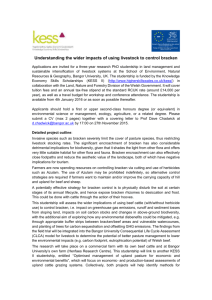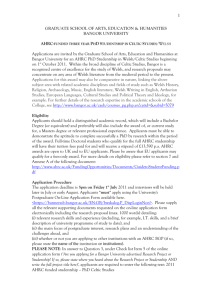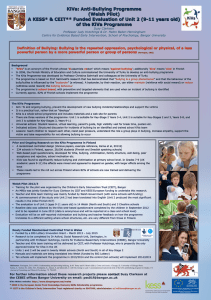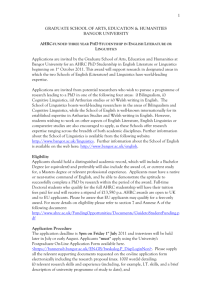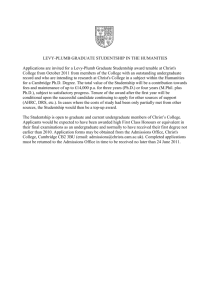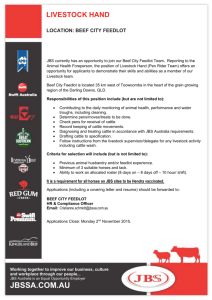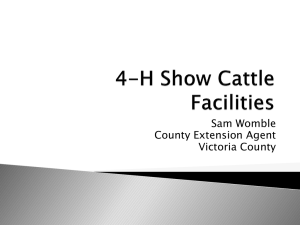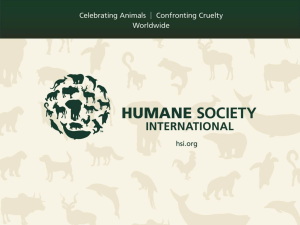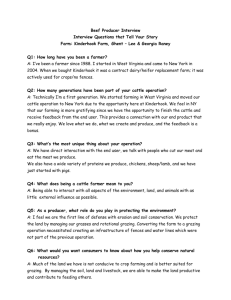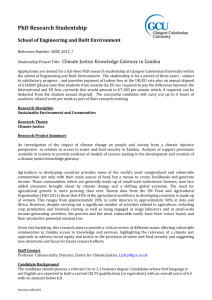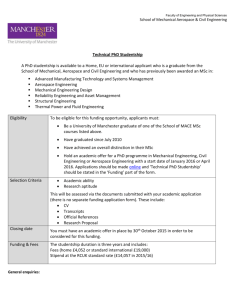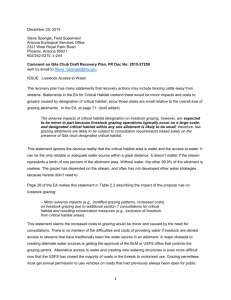PhD studentship in sustainable intensification of livestock systems
advertisement
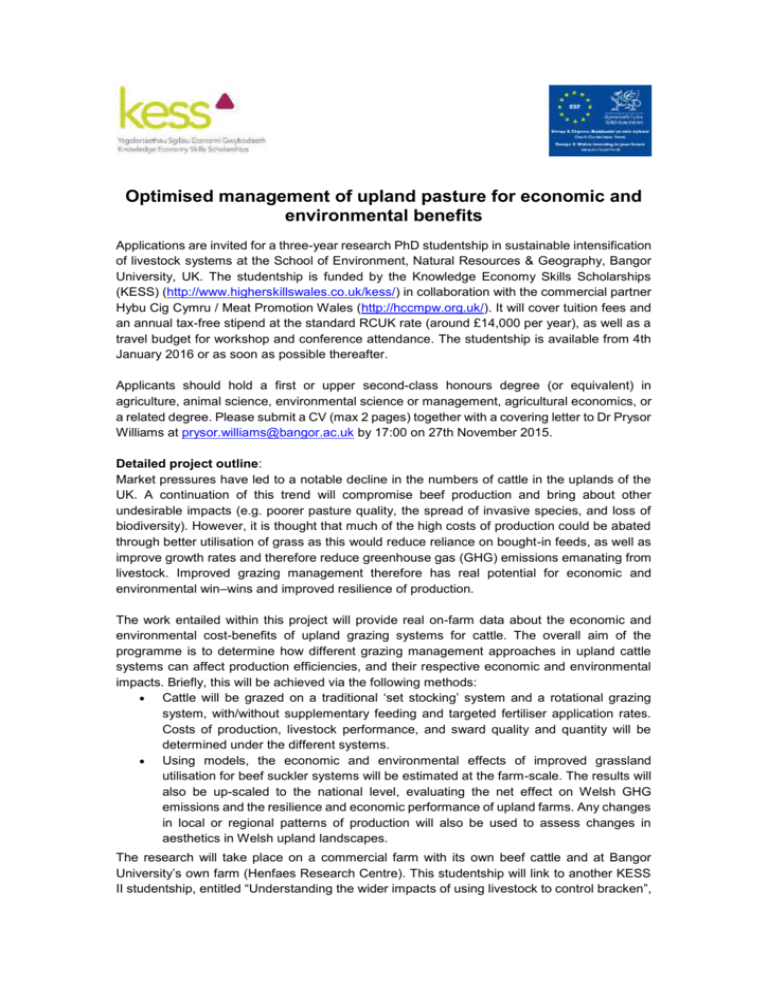
Optimised management of upland pasture for economic and environmental benefits Applications are invited for a three-year research PhD studentship in sustainable intensification of livestock systems at the School of Environment, Natural Resources & Geography, Bangor University, UK. The studentship is funded by the Knowledge Economy Skills Scholarships (KESS) (http://www.higherskillswales.co.uk/kess/) in collaboration with the commercial partner Hybu Cig Cymru / Meat Promotion Wales (http://hccmpw.org.uk/). It will cover tuition fees and an annual tax-free stipend at the standard RCUK rate (around £14,000 per year), as well as a travel budget for workshop and conference attendance. The studentship is available from 4th January 2016 or as soon as possible thereafter. Applicants should hold a first or upper second-class honours degree (or equivalent) in agriculture, animal science, environmental science or management, agricultural economics, or a related degree. Please submit a CV (max 2 pages) together with a covering letter to Dr Prysor Williams at prysor.williams@bangor.ac.uk by 17:00 on 27th November 2015. Detailed project outline: Market pressures have led to a notable decline in the numbers of cattle in the uplands of the UK. A continuation of this trend will compromise beef production and bring about other undesirable impacts (e.g. poorer pasture quality, the spread of invasive species, and loss of biodiversity). However, it is thought that much of the high costs of production could be abated through better utilisation of grass as this would reduce reliance on bought-in feeds, as well as improve growth rates and therefore reduce greenhouse gas (GHG) emissions emanating from livestock. Improved grazing management therefore has real potential for economic and environmental win–wins and improved resilience of production. The work entailed within this project will provide real on-farm data about the economic and environmental cost-benefits of upland grazing systems for cattle. The overall aim of the programme is to determine how different grazing management approaches in upland cattle systems can affect production efficiencies, and their respective economic and environmental impacts. Briefly, this will be achieved via the following methods: Cattle will be grazed on a traditional ‘set stocking’ system and a rotational grazing system, with/without supplementary feeding and targeted fertiliser application rates. Costs of production, livestock performance, and sward quality and quantity will be determined under the different systems. Using models, the economic and environmental effects of improved grassland utilisation for beef suckler systems will be estimated at the farm-scale. The results will also be up-scaled to the national level, evaluating the net effect on Welsh GHG emissions and the resilience and economic performance of upland farms. Any changes in local or regional patterns of production will also be used to assess changes in aesthetics in Welsh upland landscapes. The research will take place on a commercial farm with its own beef cattle and at Bangor University’s own farm (Henfaes Research Centre). This studentship will link to another KESS II studentship, entitled “Understanding the wider impacts of using livestock to control bracken”, which will focus on the environmental cost–benefits of using cattle as a means to control bracken. Collectively, both projects will help identify methods for sustainable intensification of livestock systems, helping to deliver economic and environmental benefits. Background to the school: The School of Environment, Natural Resources & Geography at Bangor University is internationally renowned for its cross-disciplinary research on sustainable land use, and has a broad expertise in the fields of agriculture and environmental sciences. The project will build on a number of relevant existing and forthcoming projects at Bangor on sustainable intensification of livestock production systems. We have a wealth of staff and state-of-the-art facilities for labbased and field-based experiments. The project directly addresses two of Hybu Cig Cymru’s priorities: Grassland and forage management, and Development of technologies to increase production efficiencies. The student will benefit from a strong link to industry and being part of a bigger team working on related projects. Knowledge Economy Skills Scholarships (KESS) is a pan-Wales higher level skills initiative led by Bangor University on behalf of the HE sector in Wales. It is part funded by the Welsh Government’s European Social Fund (ESF) convergence programme for West Wales and the Valleys.
